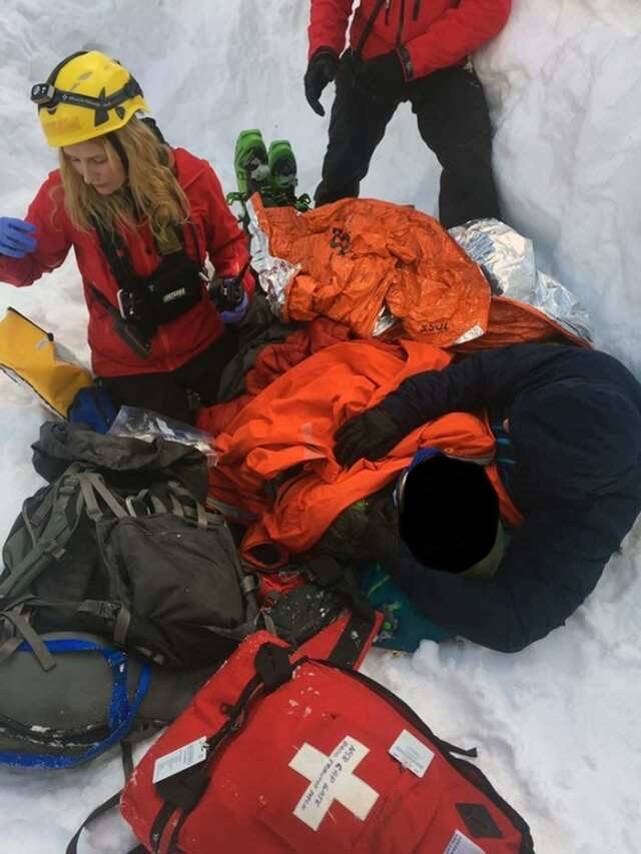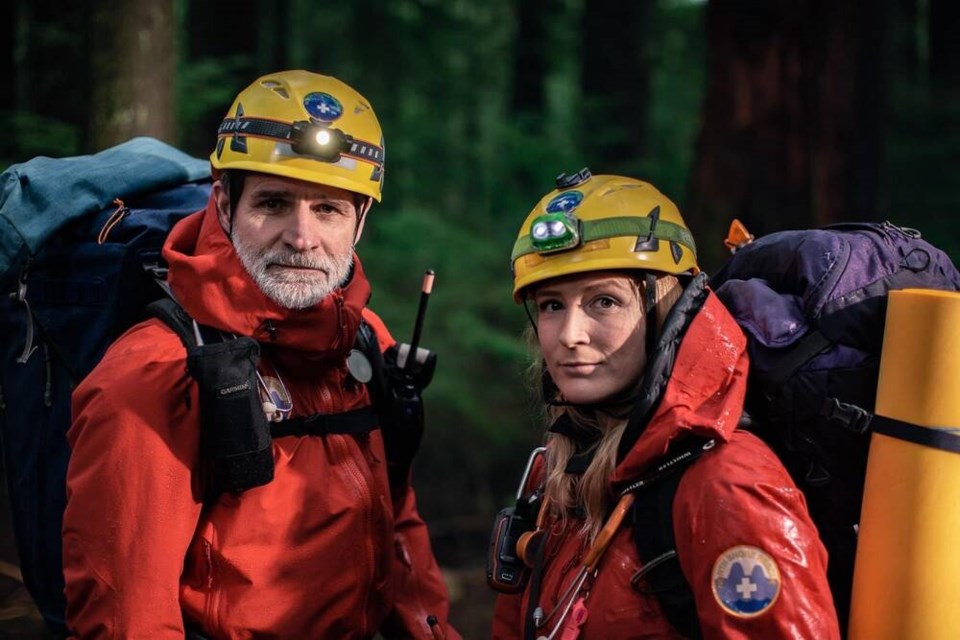A 25-year review of backcountry medical calls responded to by North Shore Rescue has revealed a surprising number of those aren’t for injuries caused by activities in the mountains, but for other kinds of medical issues that happen to take place far from usual medical help.
Another finding is that a surprisingly high number of those medical calls have been for mental health crises.
The detailed look at North Shore Rescue’s medical callouts between 1995 and 2020 is contained in an academic study published this month in the prestigious Wilderness in Environmental Medicine journal, by a group of doctors and a nurse, including the two leaders of North Shore Rescue’s advanced medical personnel (AMP) resource team.
54 per cent of calls for 'traumatic injury' in backcountry
The study, which looked at medical callouts to 906 people in the backcountry, showed 54 per cent had suffered a traumatic injury – such as breaking a leg or suffering a head injury in a fall. But 41 per cent of the calls were for medical issues that weren’t caused by a traumatic injury. Of those, the top two causes (at 25 per cent each) were mental health crises and exposure, while cardiac incidents made up 11 per cent of medical calls. Eight per cent of those calls were for wandering people with dementia.
The study – which also looked at the seriousness of the medical call – found that half of the incidents were serious enough to require a medical assessment at a hospital.
Dr. Alec Ritchie, an emergency room physician at Lions Gate Hospital, clinical professor of emergency medicine at UBC and the leader of North Shore Rescue’s medical team, said he was surprised both by the high proportion of non-trauma medical calls and by the relatively high number of mental health calls, which included everything from people who were suicidal to people having panic attacks or who were high on drugs.
The information contained in the study will likely inform everything from the kinds of training the rescue team takes part in, to the kinds of equipment members carry into the field, said Ritchie.
Having the data will also help when it comes to the team advocating for needed resources, said Ritchie.
The study originally grew out of a project started by a medical student and medical resident who came to North Shore Rescue to learn about the nature of emergency medical care provided by the team.
The study is significant because of the length of time it was able to track data from one team, and the level of detail it contained, said Ritchie, who also presented the findings in October at a conference for the International Commission on Alpine Rescue in Montreux, Switzerland.

Hiking, biking, snow sports are top activities leading to calls
Over the 25-year span of the study, the percentage of callouts that were medical in nature ranged from 14 to 60 per cent. The vast majority of the 2,078 calls (89 per cent) in that time were search and rescue, followed by six per cent of calls for body recoveries.
Of the medical calls, which took an average of 12 hours to complete, the average age of patients was 35, and 65 per cent of subjects were men.
The top three activities that led to medical calls were hiking (53 per cent), biking (10 per cent) and snow sports (10 per cent).
Death was the outcome for 15 per cent of the trauma calls and 18 per cent of the non-trauma calls. The leading causes of non-traumatic death were suicide (29 per cent), cardiac arrest (27 per cent) and drowning (22 per cent), according to the study.
Those statistics are consistent with those from studies of other Canadian mountain rescue teams, said Ritchie.
“People have to realize that with the North Shore mountains, part of their beauty is that they are rugged, and they are wilderness. And with that comes risk,” he said.
Night flying, hoists 'game changers'
Ritchie added even since the time period covered by the study ended, just three years ago, a lot has changed – including the rescue team’s authorization to fly and hoist patients by helicopter at night.
Those are “game changers” when it comes to medical outcomes, said Ritchie.
“There’s something very important in medicine, that’s time,” said Ritchie. Compared to a traditional longline, “a hoist saves 20 to 30 minutes per call,” he said.
North Shore Rescue’s advanced medical provider resource team is made up of 11 emergency room or ICU doctors, anesthesiologists and one nurse, who combine advanced emergency medical skills with experience and training in backcountry mountaineering.
Medical personnel on the team also must live on the North Shore, so they can be ready to head out at a moment’s notice.
Of the 12 people currently on the team, seven doctors and one nurse work regular jobs at Lions Gate Hospital, while four doctors work out of Royal Columbian in New Westminster.
Ritchie and registered nurse Kayla Brolly are team leaders of the medical resource team and both also regular members of North Shore Rescue.
Ritchie added, however, that many medical calls responded to by the team aren’t ones that require an emergency doctor or nurse. Other North Shore Rescue members who aren’t medical professionals also do a great job of helping people with more common injuries like twisted ankles and knees, he said.





